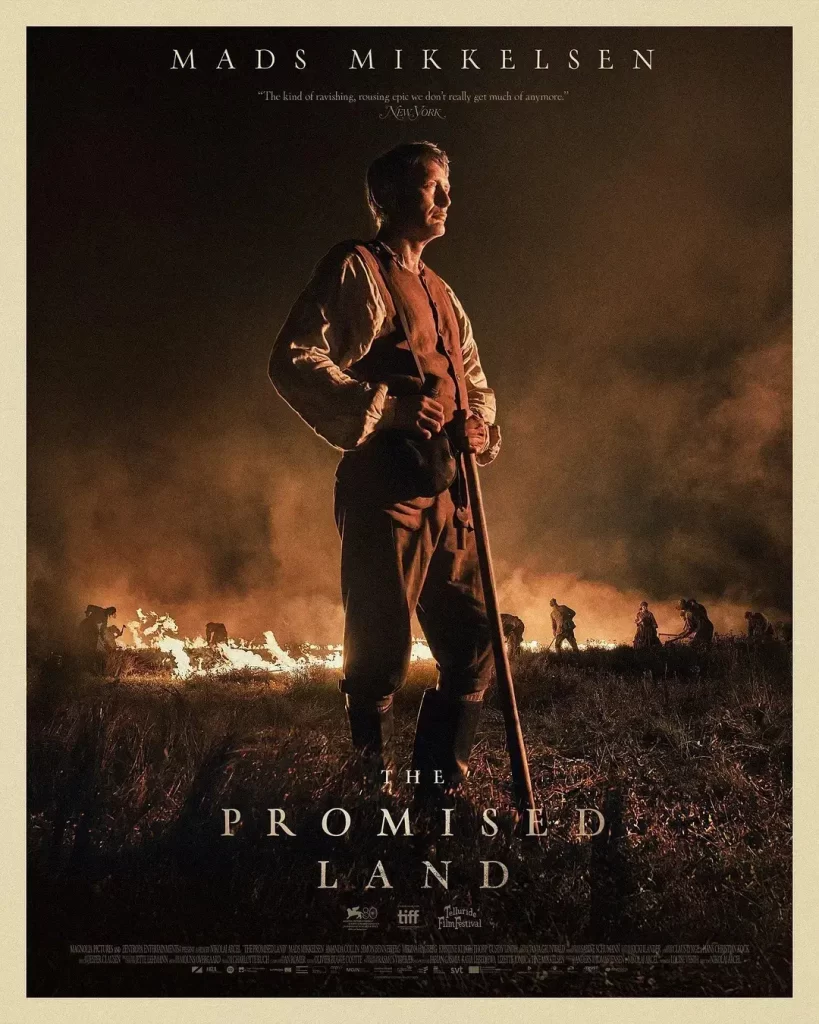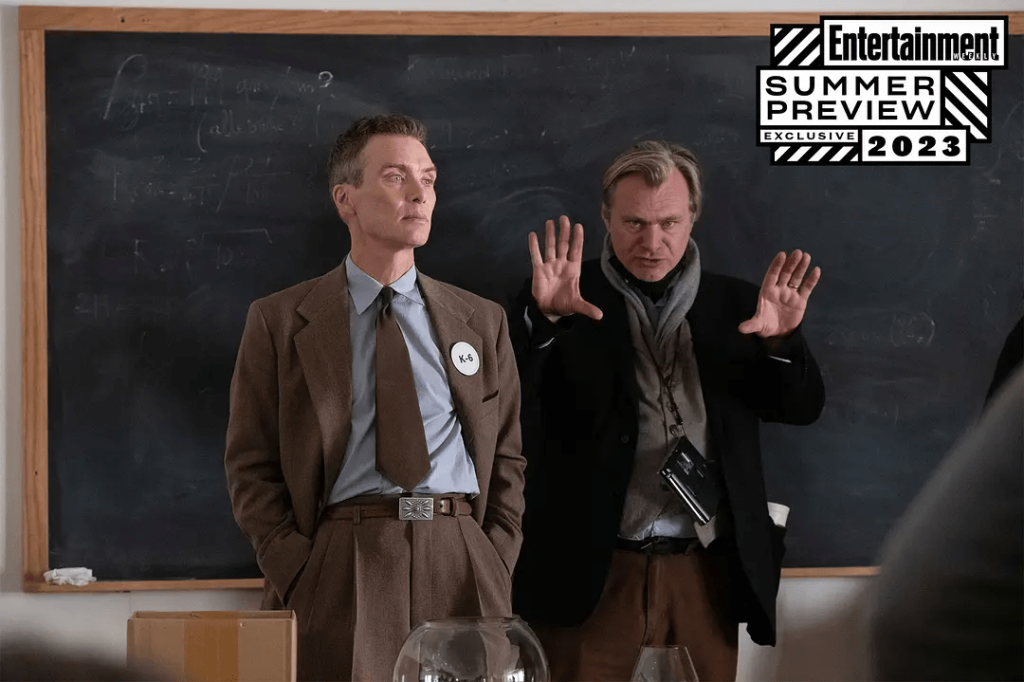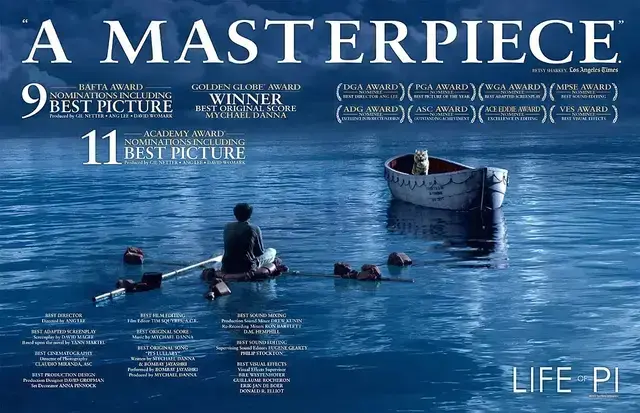In the 18th century, the King of Denmark ordered the settlement of the vast Jutland Wasteland to increase tax revenues. Here the land is barren, violent bandits are rampant, and the difficulty of reclamation makes everyone discouraged. The illegitimate son of an old nobleman came forward, and in order to gain his reputation, he even offered to solve the problems of money and manpower himself, without asking the state for a penny. Little did he know that his future would change.

Danish director Nick Le Arsay’s film “Bastard” is a literary sense of thick, smooth narrative film masterpiece. Thanks to the solid work of the original novel “Captain and Ann Barbara”, the adapted film will still be the top in the world in 2023.
The deep and lonely impression of the northern European wilderness, the tenacity and pain of the pioneers, condensed in 127 minutes is not at all lengthy. Veteran fans who have already guessed where the story and characters are going will still be caught by a sense of proportion.
The relatively simple character relationship and the pure shot scheduling are permeated with the unique cold and lonely pride of Nordic filmmakers. Many shots are often empty scenes of one character, but they give the audience a sense of epic.
At the beginning of the film, the image of Captain Cullen appears in front of the audience by the faint light of the fire in the dark environment. Everyone else was resting, only he carefully wiped his badge, straightened his uniform. Just a few shots show how much he values his honor and how serious he is about what’s to come.
Next, the executive minister’s dog in the ornate mansion licks the food on the table, while the other ministers look the other way, mocking and scorning Captain Cullen’s proposal. In the face of everyone’s disdain and humiliation, Karen is neither humble nor arrogant, and in various ways, even at the expense of personal interests, put forward his own demands and finally obtained consent.
One light and one dark, one high and one low, one cold and one hot, the first 5 minutes or so can see the film’s delicate, character identity and state of difference.
In contrast to the luxury of ministers, only heather and weeds accompanied Jutland Waste. Cullen had to explore the whole area, working day and night trying to find land to farm.
At the same time, the theft of the stateless, the intrusion of the local nobility, and the embarrassment of not having enough money and men were always with Captain Cullen. His gamble was seen by all as a huge gamble, doomed to failure.
Karen knew he had to win.
Get help from priests to build connections and maintain local power and labor relations. Risk alone, with the lowest cost to obtain sufficient labor resources. Visit the nobles, try to get time and space with a low profile.
As long as the entrepreneur knows that others can’t rest when they rest, they must be in an endless state of struggle to deal with any sudden problems. Beneath Captain Cullen’s unsmiling expression was the sincerest kindness, and the desire for success permeated with the grimy bitterness. His efforts also made his employees feel treated and respected in a way they had never felt before.
At this stage, the hero’s perseverance, courage, restraint, determination to reform and kill the decisive performance incisively and vividly.
In the face of his noble half-brother (not to mention emotionally), he always repressed his resentment. Comprehensive ability are not as good as their own each other is hard by identity suppression above their own, the son with the mother to bring a sense of superiority has always haunted Karen’s life.
Corresponding to the details of the beginning of the film, he wiped his badge and confronted the Danish upper class only to obtain fame and status, the audience can easily see that his heart is here. Some were born in Rome, others were born mules, and the struggle under the solidification of class is as difficult as heaven.
Forbearance is a necessity, restraint is temporarily unable to attack, which later launched an anti-sneak attack was a disaster.
The more admirable part of reclamation is his pragmatic spirit, mobilization ability, hands-on ability, hard work and order maintenance. After the initial outflow of employees, Karen was able to abandon social prejudices to recruit homeless people, put aside identity and even abandon badges representing identity, and obtain the maximum human cost with the minimum cost, which was unimaginable at that time.
And in another round of hiring screening stage, after weighing the left and right, decisively give up (temporarily) the gypsy little girl, and further promote the success of subsequent reclamation.
The relationship with the escaped serf couple would change the course of Captain Cullen’s life. Originally was aimed at cheap employment, but the other party’s practical hard work won his trust. The death of her husband has aroused Karen’s desire to fight, and the key to the public execution is to endure.
The wanton slaughter of the antagonist nobility has broken the bottom line of evil, and finally pushed Karen to the opposite. Of course, the serf wife in the story becomes Karen’s later life partner.
There’s no doubt that actresses Amanda Collin and Mikkelsen gave great performances. The dialogue in this film is minimal. A silent labourer, a widow’s servant who has lost her husband, how little dialogue there is. With subtle expression control and body language, the two actors are always able to communicate their characters with a casual pause between eyes and movement. Compared with this non-performance, many of the so-called acting blows in recent years are absolutely superior.
Common destiny, common suffering, and common enemies bring maid Barbara and Karen together. Their relationship was not officially made public, but everyone, including the little Gypsy girl, knew that they were the men and women of the moor.
They work together to make this wasteland into a reclaimed farmland, shelter the homeless people, harvest the dreams they did not dare to expect before, and establish a new order of justice and love, carrying happiness and the future.
Good and evil come to an end, and the battle comes sooner and later.
In the end, the former villain nearly killed Karen, and Barbara and his noble wife joined hands to kill the enemy, and exchanged their own prison disaster for Karen’s freedom. And Karen is in the success of the determined to give up identity, rob Barbara double double flight. The former reputation and status were eventually replaced by love that was hard to give up, and power and status were not worth the companionship and reliance of loved ones.
At the end of the film, her Gypsy daughter is gone, and she picks up the fateful stick. Karen, who was alone, remembered the bowl of porridge Barbara had given her, and cried with mixed feelings.
In the fleeting eye changes, the audience looks back on her hard life like Karen, and some beauty and happiness are also Barbara’s company. She was no longer the maid, but the mistress of this place, her other half, the representative of the greatest and truest love on this farm, nay, this moor.
Mickelson’s performance in this section is very good. His portrayal in Hollywood films in recent years has been nothing but tangible and uninspiring. And the ample emotional expression of such a fixed camera is the soul-grilling human insight that Hollywood lacks most today. And it is this performance and the delicacy of shaking his head before nodding his head when sending his daughter away that proves his excellent acting skills to the world.
Life is like this. So it was with Captain Cullen, so it was with the serf couple who went to Cullen, so it was with the priest who was shot, so it was with the Gypsy daughter who went from being a thief to a daughter. Everyone trying to live ah, every moment in the choice and be chosen to walk, no one knows what the future will be. Captain Cullen’s strength comes from the risk and the determination, from the peace and loneliness alone. Finally look down on everything, choose to put down the desire for fame and wealth, choose love and return.
The film is like a good wine, the more the better, the longer the aftertaste.











